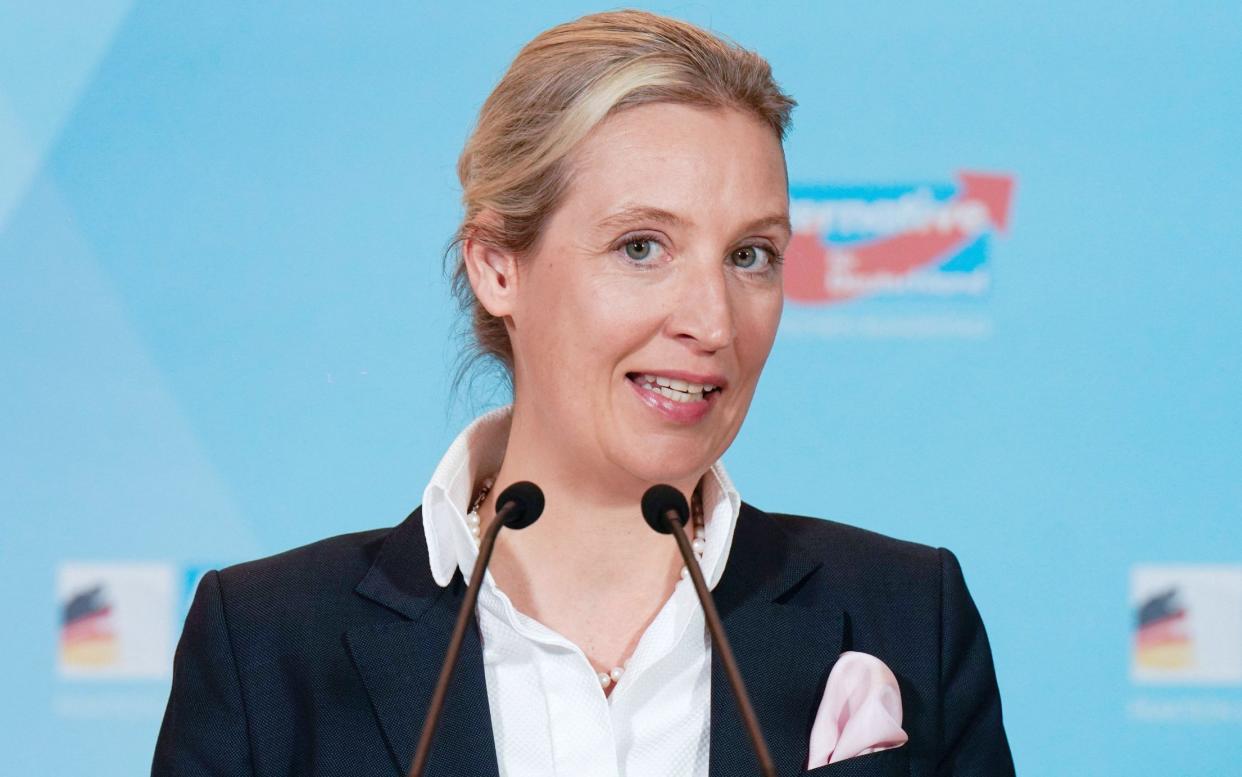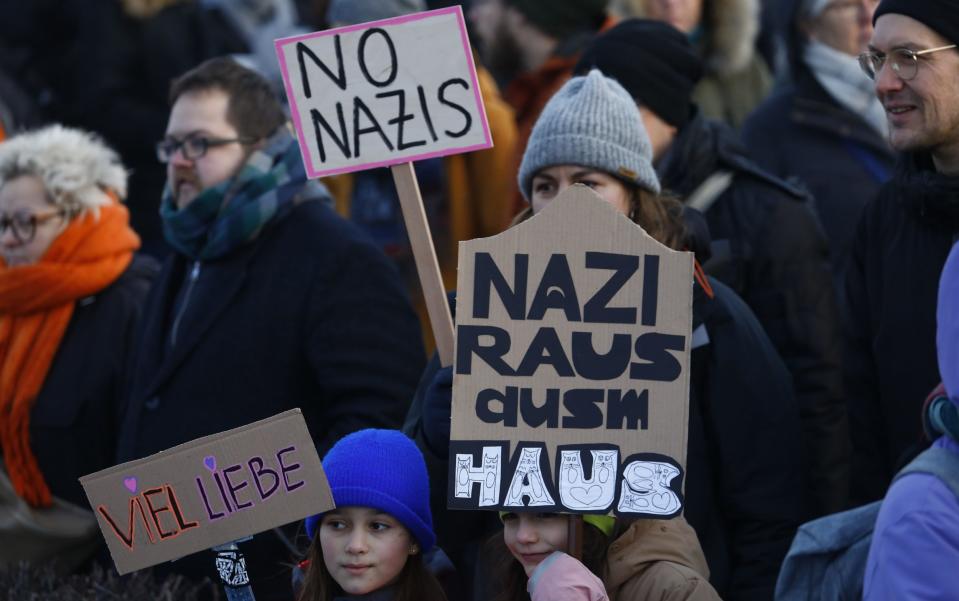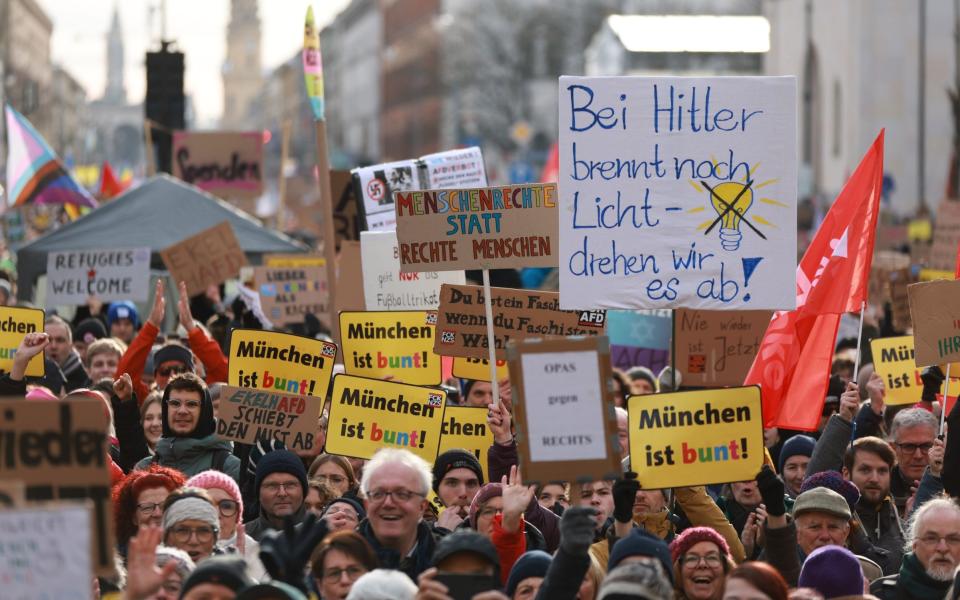Germany should hold ‘Dexit’ vote on leaving EU, says AfD leader

- Oops!Something went wrong.Please try again later.
Britain was “dead right” to leave the European Union and Germany should hold its own “Dexit” vote, the leader of the hard-Right Alternative for Germany (AfD) has said.
Alice Weidel, of the poll-topping AfD, said she would push for a referendum on EU membership if her party came to power.
Ms Weidel said the vote would be held if an AfD government could not secure reforms to curb overreach by the “unelected” European Commission.
“If a reform isn’t possible, if we fail to rebuild the sovereignty of the EU member states, we should let the people decide, just as Britain did,” she told the Financial Times.
“And we could have a referendum on ‘Dexit’ – a German exit from the EU.”
She added: “It is a model for Germany, that one can make a sovereign decision like that.”
Winning such a referendum, even if it met strict German laws for plebiscites, would be a tall order, with 90 per cent of people in favour of continued membership.
A recent poll found that less than half (45 per cent) of AfD members would vote for Dexit.

The AfD is leading the polls in all five East German states ahead of regional elections in September. The party’s results in June’s European Parliament elections will also be closely watched amid predictions of success for Eurosceptic parties across the bloc, including in France, Austria and the Netherlands.
It is polling nationally at 22 per cent, behind the centre-Right opposition Christian Democratic Union but ahead of all three parties in Chancellor Olaf Scholz’s struggling coalition government.
However, the AfD’s current success does not guarantee it a place in a future government.
Establishment parties have ruled out coalition deals with it and it does not lead any of Germany’s 16 states because of the cordon sanitaire or firewall by the other parties.
Ms Weidel admitted that the AfD would not be able to take power in Berlin before 2029 but said a future role in government was “inevitable”.
She predicted that the CDU, the centre-Right party of former chancellor Angela Merkel, would be the first to break the “firewall” of establishment forces and ally with the AfD.
She said: “The CDU won’t be able to maintain its firewall in the long term.”
“We can form a clear Right-wing majority. And the CDU can’t refuse to accept that in the long term, especially in the eastern states.”
Once in power, Ms Weidel said the party would reform tax laws, slim down the state and end Germany’s switch to renewable energy.
The AfD is classified as Right-wing extremist by the intelligence services in three East German states.
There were calls to ban the party after it was revealed AfD politicians attended a secret November meeting of far-Right groups.
Extremists in Potsdam drew up plans for expelling millions of immigrants, including those with German passports.
The echoes of Nazi ideology in the policy shocked Germany and anti-AfD demonstrations were held across the country.

Ms Weidel, party leader since 2022, was not at the meeting and fired an aide who was.
“It was just an attempt to criminalise the very idea of repatriating people lawfully who don’t have leave to remain here, or are subject to a deportation order,” she said in an attack on Correctiv, the media organisation that revealed the meeting.
“The AfD is the party that stands for enforcing this country’s laws,” she told the Financial Times.
The AfD is pro-Russian and is accused of being soft on Vladimir Putin. Ms Weidel said the 1.1 million Ukrainian refugees in Germany should not have been allowed to draw benefits.
“It’s clear that when the war ends, all Ukrainians will have to go home. They will be needed anyway to help rebuild their country,” she said.
The AfD was set up in 2013 by conservative economists angered at bailouts in the Eurozone crisis.
Despite the recent scandal, it has remained popular, thanks in part to Mr Scholz’s failures on the economy.

